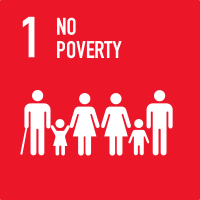Studying at the University of Verona
Here you can find information on the organisational aspects of the Programme, lecture timetables, learning activities and useful contact details for your time at the University, from enrolment to graduation.
Study Plan
This information is intended exclusively for students already enrolled in this course.If you are a new student interested in enrolling, you can find information about the course of study on the course page:
Laurea in Scienze del servizio sociale - Enrollment from 2025/2026The Study Plan includes all modules, teaching and learning activities that each student will need to undertake during their time at the University.
Please select your Study Plan based on your enrollment year.
1° Year
| Modules | Credits | TAF | SSD |
|---|
2° Year It will be activated in the A.Y. 2025/2026
| Modules | Credits | TAF | SSD |
|---|
3° Year It will be activated in the A.Y. 2026/2027
| Modules | Credits | TAF | SSD |
|---|
1 module between the following| Modules | Credits | TAF | SSD |
|---|
| Modules | Credits | TAF | SSD |
|---|
| Modules | Credits | TAF | SSD |
|---|
1 module between the followingLegend | Type of training activity (TTA)
TAF (Type of Educational Activity) All courses and activities are classified into different types of educational activities, indicated by a letter.
Public Law (2024/2025)
Teaching code
4S00457
Credits
6
Language
Italian
Scientific Disciplinary Sector (SSD)
IUS/09 - PUBLIC LAW
Courses Single
Authorized
The teaching is organized as follows:
Public Law
Public Law
Learning objectives
General Learning outcomes Knowledge and understanding - Knowledge and understanding of the rules governing social services organizations - Knowledge and understanding of the main legal instruments made available to social workers by their institutions Ability to apply knowledge and understanding - Ability to integrate their professional work with the main aims of their institutions - Ability to know and respect the limits given by the legal apparatus to their actions - Ability to make full use of the legal instruments made available by their institutions. SPECIFIC OBJECTIVES Main aim of the course is to provide students with the knowledge of the principles, rules, main concepts and arrangements of the public law with particular regard to our Constitution in order to make the future social workers able to understand properly the rules governing social services institutions and use the legal instruments at their disposal. Secondly the course wants to provide future social workers with the knowledge necessary to know and understand the limits given by the legal apparatus to their actions.
Prerequisites and basic notions
No previous legal knowledge is required.
Program
In order to facilitate the learning and implementation of the knowledge involved, the course, after an indispensable introductory theoretical part, will develop through the analysis of legislative texts and case law. In particular, the teaching will consider the fundamental elements of Italian public law, highlighting the constitutional principles that inspire it and their implementation. In this perspective, after an introductory part dedicated to the State and the evolution of its forms, useful for understanding the current characteristics of the European Union, the following will be gradually analyzed: the Italian constitutional organization, with particular attention to the system of competences that characterizes our regional State; the system of sources of law; the system of recognition and multilevel protection of fundamental rights, especially social rights, with particular attention to the right to health and the right to social assistance. From a public law perspective, the essential elements for the correct and responsible performance of future professional activities will be discussed, in a social context inevitably projected towards an "open social citizenship".
In summary:
1. The State, its forms and public bodies.
2. The European Union: notes.
3. The Italian constitutional organization.
4. In particular: the regional and local government organization.
5. The sources of law: general notions.
6. The protection of rights: judges and the Constitutional Court.
7. Fundamental constitutional rights.
8. In particular: the right to health.
9. In particular: the right to social assistance.
10. The multilevel protection of rights: anthology of legislative texts and case law.
Bibliography
Didactic methods
To allow students to acquire the skills indicated, the topics in the program will be treated not only with lectures but also by means of numerous laboratory activities, characterized by the use of slides concerning not only the theoretical profiles of the subject but also the the most significant reference legislative texts and the essential case law associated with them.
Learning assessment procedures
The exam will be based primarily on the reference text indicated in the bibliography (Leganto), limited to the following chapters: I, II, III, IV, VI, VII, IX, X, XI, XII (up to page 232), XIII (up to page 343). The exam will be in written form and will consist of two questions proposed by the examining commission, evaluated in thirtieths. Candidates will have a total of 50 minutes and no more than 30 lines to answer each question. There is no oral integration of the exam. There are no intermediate tests.
Evaluation criteria
The exam will be aimed at ascertaining: • knowledge of the topics on the program; • the ability to present them with an appropriate legal lexicon; • the ability to connect the acquired knowledge in a systemic form; • analytical and argumentative skills; • the ability to apply the logical-legal schemes that can be deduced from the topics dealt with and, in particular, from the jurisprudential cases dealt with in the context of laboratory activities.
Criteria for the composition of the final grade
The final grade will take into account any oral reports made by the participants during the course.
Exam language
Italiano




